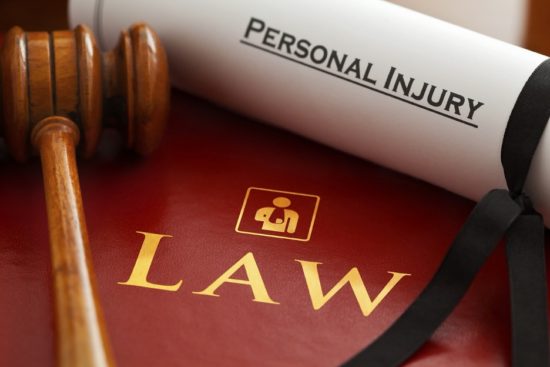Getting hurt unexpectedly is stressful enough. But dealing with paperwork, bills, and phone calls afterward? That’s a whole different headache. Knowing what to do right away can make a huge difference in how things turn out—not just for your health but also for your legal protection. Don’t guess your way through it. If you take the right steps early on, you’ll save yourself time, money, and a lot of frustration later.
In Miami, personal injury claims are surprisingly common. According to the Florida Department of Highway Safety and Motor Vehicles, there were over 63,000 crashes in Miami-Dade County in 2022 alone. Many of these incidents lead to injuries that disrupt work, family life, and finances. Yet a large number of people don’t receive full compensation—often because they weren’t sure what to do or who to turn to. This guide is here to help you avoid that outcome.
Seek Medical Attention Immediately
Even if your pain seems minor at first, it’s important to get checked out by a doctor. Some injuries show up hours or even days later. Medical records also prove that you were treated and help connect your condition to the event. If you delay, it can hurt both your health and your case. A quick visit to a clinic or hospital can protect you in more ways than one.
Talk to an Experienced Legal Professional
Knowing your rights is hard when you’re still processing what happened. Getting advice early helps you avoid mistakes like signing the wrong papers or missing deadlines. A Miami personal injury attorney can guide you through everything from dealing with insurance companies to filing a claim while ensuring you follow the region’s law. They can help you understand your options before making any big decisions. It’s support you can trust without any pressure.
Document Everything
Begin collecting evidence right away. Take clear photos of injuries, damaged property, and the scene. Keep all paperwork, including medical records, receipts, and prescriptions. If anyone saw what happened, get their names and contact details. These pieces of information can make a big difference later, especially if your claim is questioned or challenged. Staying organized from the start helps you build a clear, accurate timeline and strengthens your case. It’s a simple step that can save time, support your version of events, and improve your chances of receiving fair compensation.
Report the Incident to the Right Authorities
Make sure there’s an official record. That might mean calling the police, notifying your employer, or filing a report with a store or property manager. This step creates a paper trail that confirms when and where it happened. An official report also adds credibility to your side of the story. It’s quick, easy, and one of the most effective ways to protect yourself legally.
Don’t Admit Fault or Apologize
Saying “sorry” might feel natural, but it can be misunderstood. Even a simple apology could be used as an admission of fault. Stick to the facts and stay calm. Let investigators and legal experts sort out the details. Being polite is fine—just avoid saying anything that could come back to hurt your claim.
Avoid Giving Recorded Statements to Insurers
Insurance companies often ask for a recorded statement shortly after a claim is filed. While this might seem harmless, what you say can be used to limit your payout. You might downplay your injuries or leave out key facts by mistake. It’s best to speak with a lawyer before agreeing to anything. This gives you time to understand what’s being asked and ensures that your answers won’t harm your claim. You’re not required to give a recorded statement right away, so don’t feel rushed.
Keep Off Social Media
It’s tempting to update friends or post about what happened, but social media can work against you. Photos, check-ins, and even casual comments might be misinterpreted or used to argue that you’re not as injured as claimed. A simple photo of you out for lunch could be twisted to suggest you’re fully recovered. Until your case is resolved, limiting what you post is smarter. Privacy settings don’t always protect you from insurance companies doing their own research.
Know Your Deadlines
Legal claims have time limits, known as statute of limitations. If you wait too long, you might lose the right to take legal action altogether. In many states, the window to file is as short as two years. That might sound like plenty of time, but paperwork, medical records, and insurance delays can eat away at that quickly. Starting early ensures you don’t miss out simply because the clock ran out.
Include Property and Transportation Costs
Injury-related expenses go beyond just medical bills. Property damage—such as repairs to your vehicle, phone, or personal belongings—should also be documented and included. Transportation costs for medical visits, legal appointments, or rental cars can add up quickly. These out-of-pocket expenses are often overlooked, but they play a key role in determining the full impact of the incident. Keeping accurate receipts and records ensures you get reimbursed for all the practical costs related to your recovery.
Understand Settlement Offers Before Accepting
Insurance companies often make quick offers to close a case early. These might sound appealing, especially if you’re dealing with bills, but they’re rarely in your best interest. Once you accept a settlement, you usually can’t ask for more—even if your condition gets worse. Take time to review the terms carefully and speak with a legal professional. A short delay now could mean thousands more in fair compensation later.
Knowing what to do after getting hurt isn’t just about recovery—it’s also about protecting your future. The decisions you make in the first few days and weeks can shape the outcome of your entire case. By following these steps and getting trusted legal help, you improve your chances of getting the compensation you deserve. A personal injury attorney can be your advocate through it all—so you’re not navigating the process alone. Don’t leave your rights to chance. Take action and protect yourself the right way.



Speak Your Mind